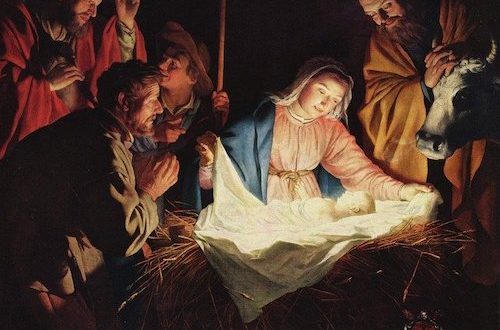
Complementarians on Women in Ministry: Diverse Images
I read recently that when boards of directors have both male and female representation, they make better decisions. Doesn’t that sound consistent with Genesis 1:28? Not to everybody. Especially not those at the conservative end of the complementarian camp (and it is a very wide camp with a lot of difference inside).
The word “complementarian” gets underlined in red in a Word doc, because it’s a word people made up. And they did so to emphasize that men and women are complementary.
Some say “egalitarians [hereafter E’s] believe men and women have no gender differences and that complementarians [hereafter C’s] believe in the beautiful design of God for gender differences.” But honestly? That’s baloney. In terms of their view of the existence of gender differences, both camps believe men and women are complementary.
The actual contrast between E’s and C’s and their view of gender differences is in whether they believe hierarchy is ever a ramification of those differences. E’s don’t believe In it, ever; C’s do. But to greatly varying degrees. And that is where they differ.
So I want to focus primarily on the difference between some complementarians.
Among those who believe in hierarchy, whether broadly or limited to within marriage, there is great diversity in how differently they think gender differences should work themselves out. Some C’s believe that by virtue of their maleness, men are created for authority over women in a way that women are not created to have authority over men. Others, like George and Dora Winston, would limit that hierarchy to marriage.
Some think complementarity means men and women should partner in every way possible as they “rule the earth” together, with a few roles limited to men. But even those roles, they would say, should be greatly informed by women’s contributions. So asking a non-elder woman to attend an elders’ meeting, for example, might be viewed as consistent with Scripture rather than unfaithful to it.
At the other end of the complementarian spectrum are those who mislabel the others within the camp as egalitarians and say such people are too liberal with the biblical text. Many of them teach that women should be excluded from seminaries, boards, elder meetings, writing commentaries, and translating the Bible. One theologian I know in this camp taught his all-male class that women being granted suffrage in 1920 was and is an evidence of a male leadership failure. To these folks, a woman involved in all the above-described contexts represents men failing to fulfill their spiritual responsibility to lead.
When it comes to theology, those in the former group actively look for ways to involve women; the latter often see doing so as compromise. So some male complementarians create seminary internships for women, make sure women are represented on journals and committees, invite them to bring their scholarship to translations, and believe that without women’s eyes on the text, they miss something essential. One C I know who attends a conservative church asked a woman seminarian to join preaching-team meetings, even though he doesn’t believe a woman should preach in church. He thinks the team needs her input. I know of other complementarian men who have offered to help women get ordained so they can have more far-reaching ministries. Generally, those in this part of the camp believe complementarity means men are lacking in some way without women’s eyes on the text and active contributions. That is, they invite women to “do theology.”
The more traditionalist complementarians see such actions as male fail. And they often label the evangelicals at the other end of the specrtrum as "liberals" and "egalitarians." Sometimes even sissies! But the difference is not in views of inerrancy; it is in views of interpretation.
The fact that only 7 percent of the membership of the Evangelical Theological Society is comprised of women (and those who do belong often feel marginalized) may be a reflection of the more conservative belief. ETS's journal has no women on the review committee, and they voted only conservative complementarians to the executive committee this past year. The fact that the ESV translation committee chose to have no women translators or study note writers probably also reflects this thinking. And Master’s Seminary bars women from receiving training there.
With this knowledge as a backdrop, let’s look at how Paul did ministry, as seen in Romans 16:
Now I commend to you our sister Phoebe, who is a servant [“deacon”] of the church in Cenchrea, so that you may welcome her in the Lord in a way worthy of the saints and provide her with whatever help she may need from you, for she has been a great help to many, including me.
Greet Prisca and Aquila, my fellow workers in Christ Jesus, who risked their own necks for my life. Not only I, but all the churches of the Gentiles are grateful to them. Also greet the church in their house. Greet my dear friend Epenetus, who was the first convert to Christ in the province of Asia. Greet Mary, who has worked very hard for you. Greet Andronicus and Junia, my compatriots and my fellow prisoners. They are well known to [or “among”] the apostles, and they were in Christ before me.
Relevant to the discussion? Or no? What about you? How do you see the first-century church on this issue? Welcoming? Allowing by way of concession? Limiting? A combination?
Do you think those who hold to inerrancy but have a different view from yours have a low view of scripture? Do you see a difference between a business board meeting and church involvement? Why or why not? Do you know what you believe and why?



2 Comments
Jamie Lath
Wrestling with these questions right now
Wrestling with these questions right now as I try to find what is Biblical and what is cultural, especially as a mother to littles. I hear so often that my ministry is my children, but is that what God says? Thanks for writing into this discussion!
Pingback: